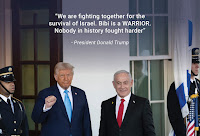As soon as eight-year-old Sidra Al Bordeeni returned from
the clinic with her prosthetic arm, she jumped on a bicycle in the Jordanian
refugee camp where she lives, riding for the first time since a missile strike in
Gaza took her arm a year ago, reports Ariba Shahid of Reuters.
Sidra was injured while sheltering at Nuseirat School, one
of several Gaza schools converted into makeshift refuges from Israeli strikes.
Her mother, Sabreen Al Bordeeni, said Gaza's collapsed health services and the
family's inability to leave at the time made it impossible to save her hand.
"She's out playing, and all her friends and siblings
are fascinated by her arm," Al Bordeeni said on the phone, repeatedly
thanking God for this day. "I can't express how grateful I am to see my
daughter happy."
The arm
was built over 4,000 kilometres away in Karachi by Bioniks, a Pakistani company
that uses a smartphone app to take pictures from different angles and create a
3D model for custom prosthetics.
CEO
Anas Niaz said the social enterprise startup had fit more than 1,000
custom-designed arms inside Pakistan since 2021 - funded through a mix of
patient payments, corporate sponsorship, and donations - but this was its first
time providing prosthetics to those impacted in conflict.
Sidra and three-year-old Habebat Allah, who lost both her
arms and a leg in Gaza, went through days of remote consultations and virtual
fittings. Then Niaz flew from Karachi to Amman to meet the girls and make his
company's first overseas delivery.
Sidra's
device was funded by Mafaz Clinic in Amman, while donations from Pakistanis
paid for Habebat's. Mafaz CEO Entesar Asaker said the clinic partnered with
Bioniks for its low costs, remote solutions and ability to troubleshoot
virtually.
Niaz
said each prosthetic arm costs about $2,500, significantly less than the
$10,000 to $20,000 for alternatives made in the United States.
While Bioniks' arms are less sophisticated than US versions,
they provide a high level of functionality for children and their remote
process makes them more accessible than options from other countries such as
Turkey and South Korea.
"We plan on providing limbs for people in other
conflict zones too, like Ukraine, and become a global company," Niaz said.
Globally, most advanced prosthetics are designed for adults
and rarely reach children in war zones, who need lighter limbs and replacements
every 12–18 months as they grow.
Niaz said they were exploring funding options for Sidra and
Habebat's future replacements, adding the cost wouldn't be too high.
"Only a few components would need to be changed,"
he said, "the rest can be reused to help another child."
Bioniks occasionally incorporates popular fictional
characters into its children's prosthetics such as Marvel's Iron Man or
Disney's Elsa, a feature Niaz said helps with emotional acceptance and daily
use.
Gaza
now has around 4,500 new amputees, on top of 2,000 existing cases from before
the war, many of them children, making it one of the highest child-amputation
crises per capita in recent history, the UN humanitarian agency OCHA said in
March.
An April study by the Palestinian Bureau of Statistics found
at least 7,000 children have been injured since Israel's war in Gaza began in
October 2023. Local health authorities say more than 50,000 Palestinians have
been killed, nearly one-third of them children.
The World Health Organization has said Gaza's health system
is "on its knees" with Israel's border closures drying up critical
supplies, meaning the wounded cannot access specialized care, especially amid
waves of wounded patients.
"Where
it's nearly impossible for healthcare professionals and patients to meet,
remote treatment bridges a critical gap, making assessments, fittings, and
follow-up possible without travel or specialized centres," said Asadullah
Khan, Clinic Manager at ProActive Prosthetic in Leeds, UK, which provides
artificial limbs and support for trauma patients.
Bioniks hopes to pioneer such solutions on a large scale but
funding remains a roadblock and the company is still trying to form viable
partnerships.
Sidra is still adjusting to her new hand, on which she now
wears a small bracelet. For much of the past year, when she wanted to make a
heart, a simple gesture using both hands, she would ask someone else to
complete it. This time, she formed the shape herself, snapped a photo, and sent
it to her father, who is still trapped in Gaza.
"What I'm looking forward to most is using both my arms
to finally hug my father when I see him," she said.







